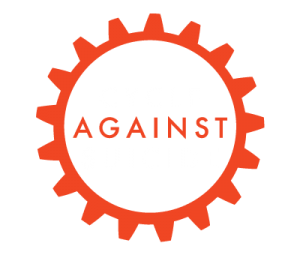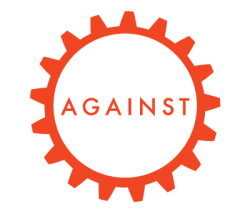Dealing with exam stress
The upcoming Leaving and Junior Certificate exams may cause stress and anxiety for some students. It is so important to remember that there are techniques and processes that can reduce these potential stresses and anxieties.
We all have the ability to be resilient. It is also very important to remember that stress can be used as a positive motivator.
Self-Efficacy
The Cambridge Dictionary defines self-efficacy as ‘A person’s belief that they can be successful when carrying out a particular task’. It refers to the belief we have in our own abilities, especially, our ability to meet the challenge ahead of us and complete a task successfully. When we are confident that we can complete a particular assignment successfully we approach it in a much more thoughtful and calm manner. Simply put, we believe in ourselves.
We all have the tools to master our self-efficacy. When it comes to exams, there are a number of ways in which we can build this:
Set Manageable Goals
Make your goals manageable as well as realistic. Make them smart goals that suit you and your daily routine best (See below).
Previous Performance
Think back to when you were successful in an exam. Remember the feeling of achievement as all your hard work paid off? You can do it again.
Physiological Factors
We’ve all experienced physical responses to stressful situations like ‘butterflies in the stomach’ when reading in class. Being able to control anxiety can have a positive impact on our self-efficacy beliefs. Practice the 2:1 Breathing Technique (outlined below) on a regular basis. Take part in an activity (walking, playing a sport, listening to music) you know relaxes you.
Learning from another’s experience
You can learn a lot from others. If you see someone succeed at something it reinforces the belief that you can also do it. Ask yourself ‘If they can do it, why can’t I?’.
Social Persuasion
Discouragement is generally more effective at decreasing a person’s self-efficacy than encouragement is at increasing it. It is therefore so important to choose your friends wisely.
Reward Yourself
Rewarding yourself for reaching a particular study goal can be very motivating. It could be going to a movie, a music gig, a sporting event or something else you have a particular interest in. It might even be something as simple as buying your favourite chocolate bar from the local shop. Be kind to yourself. Always.
Goal Setting
Goals help us to focus in the right direction. To be most effective, goals need to be specific and measurable. As mentioned above, they also need to be manageable and realistic. Goals should have a strict timeframe so that each subject is afforded the correct amount of study time.
To keep going, it can be very motivating to keep a list of your achieved goals. It has been said that ‘success breeds success’ so reaching your goals will fill you with a sense of self-belief.
Sticking to Goals
In order to stick to your goals, it is important to remember the following:
- Review your goals regularly
- Measure and assess your progress
- Make changes if they are needed. Be as honest with yourself as possible
- Keep your goals visible in your area of study. Out of sight can often also mean out of mind. Use a structured chart that’s easy to follow and that makes sense to you
The 2:1 Breathing Technique for reducing stress and anxiety
When we are stressed or anxious our breathing is impacted negatively. It becomes faster and shallower, which influences our ‘Fight or Flight’ response. This is a physiological reaction that either prepares our bodies to stay and fight or to flee stressful situations. We can change the way we respond to stress and anxiety by changing the way we breathe. The ‘Rest and Digest’ response is the opposite to ‘Fight or Flight’. This helps us relax by elevating our relaxation response.
The 2:1 breathing technique is so-called as we breathe in through our nose and then breathe out, also through our nose, for double the time. For example, if we breathe in (inhale) for 3 seconds we breathe out (exhale) for 6 seconds.
If we are every feeling stressed or anxious it is very reassuring to know that this simply breathing exercise will help us to relax. This video will show you how to undertake this exercise. Practice daily.
Reframing
Reframing is a method where we alter the way we look at something so that we can change our experience of it. Psychologists use it as a way of relieving stress to create a more positive experience for an individual. When we feel stress, our emotions are in an altered state so we may find it difficult to think logically and clearly, which is when reframing can really help.
The first step is to separate stress from distress and anxiety by understanding that stress is simply the body’s response to any demand, whether good or bad. In fact, even though excitement might be classified as a positive thing it’s actually a stress state, just like anxiety. By reframing our thoughts about stress to focus on the positive we can use it as a motivator for exam success.
It is important to note that in order for the reframing technique to be most successful it needs constant and ongoing attention so is not a technique to be practiced once then forgotten about.
A 2021 study published in the Journal of Experimental Psychology found that students taught to view stress as a coping tool performed better in their maths exams than students who were simply told to ‘put stress out of their minds’. The study’s researchers concluded that it’s further evidence that stress can be the key rather than the barrier to success if reframed positively.
The following can help you reframe stress as something useful that you can be used to your advantage:
Stress isn’t ‘bad’
As mentioned above, we now know that stress can be used as a positive motivator. Try to adopt this mindset to get away from the notion that stress is a ‘bad’ thing.
Pay attention when stress appears
The way we respond to stress can be either physical or emotional. A quickened heartbeat, sweating palms and shortness of breath are some examples of physical responses. If we are aware of what causes us stress we can respond positively to it.
Change the Message
Once you’ve recognised that stress is a perfectly normal response, reframe it positively. Think to yourself ‘Maybe this is my body’s way of giving me extra energy?’.
Plan Ahead
Most if not all of us recognise the situations that cause us the most stress. Think about what you’ve said or done in the past that hasn’t worked out favourably and make a plan to handle it differently in the future for a more positive outcome.
Practice Techniques to control stress
The 2:1 breathing technique (above) can help control stress. It is, however, not the only option. Find what works best for you.
Positive Affirmations
Our subconscious mind works by carrying out the instructions we give it. If these instructions are to achieve exam success, our subconscious mind takes this information and responds accordingly. Affirmations can differ from one person to the next depending on circumstances.
Examples of Positive Affirmations
- I believe in myself
- I study regularly
- I know what I need to know for exams
- An opportunity to learn is a chance to grow
- I am always open to learning in a better way
- The more I learn, the more I achieve
- Today I set aside my fears to achieve all my exam goals
- Good preparation for exams will make the experience of taking the exam more enjoyable
It is very important to repeat your personal affirmations often enough so they are absorbed and that you accept them to be true. Find the ones that are right for you and repeat them as often as you want until you feel the change you’re looking for. This could be first thing in the morning, last thing at night, or both. Maybe print out your chosen positive affirmations so they are clearly visible to you.
7 Tips to Combat Exam Stress
- Remember to breathe using the 2:1 Breathing Technique above
- Eat, sleep and exercise well
- Set realistic goals – achieving a big goal involves many smaller goals along the way
- Don’t go it alone. Ask for help from a parent, guardian, sibling or friend. Maybe consider a study group?
- Pace yourself through potentially stressful periods
- Believe in yourself. You have the ability within you to get through these exams.
- If you feel like you’re struggling, talk to a responsible adult or friend. A different perspective can kick start our in-built problem-solving mechanism
Exam Students 2023
If you are an exam student this year, it is vitally important to remember a few things to help in your preparation:
- You are not alone Exams can be a stressful time for students of every ability
- Life is full of ups and downs. We all have good days and bad days
- Remember to stay calm. Practice the 2:1 Breathing Technique outlined above for a few minutes each day. It will make a difference
- Perhaps most importantly Believe in yourself and your ability to get through your upcoming exams successfully
- You can do it!

